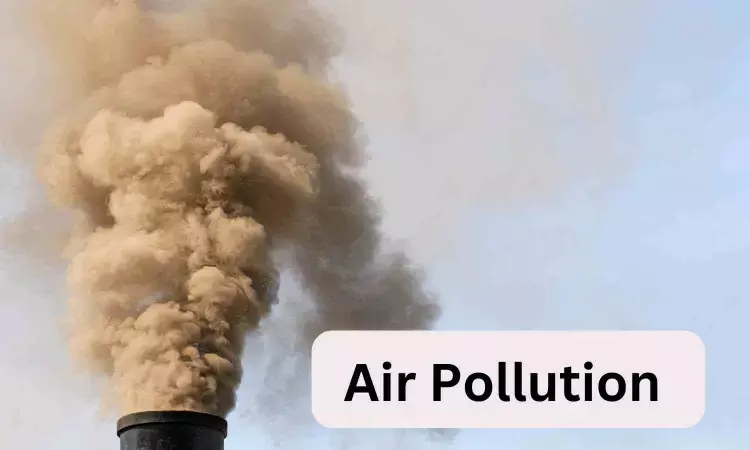- Home
- Medical news & Guidelines
- Anesthesiology
- Cardiology and CTVS
- Critical Care
- Dentistry
- Dermatology
- Diabetes and Endocrinology
- ENT
- Gastroenterology
- Medicine
- Nephrology
- Neurology
- Obstretics-Gynaecology
- Oncology
- Ophthalmology
- Orthopaedics
- Pediatrics-Neonatology
- Psychiatry
- Pulmonology
- Radiology
- Surgery
- Urology
- Laboratory Medicine
- Diet
- Nursing
- Paramedical
- Physiotherapy
- Health news
- Fact Check
- Bone Health Fact Check
- Brain Health Fact Check
- Cancer Related Fact Check
- Child Care Fact Check
- Dental and oral health fact check
- Diabetes and metabolic health fact check
- Diet and Nutrition Fact Check
- Eye and ENT Care Fact Check
- Fitness fact check
- Gut health fact check
- Heart health fact check
- Kidney health fact check
- Medical education fact check
- Men's health fact check
- Respiratory fact check
- Skin and hair care fact check
- Vaccine and Immunization fact check
- Women's health fact check
- AYUSH
- State News
- Andaman and Nicobar Islands
- Andhra Pradesh
- Arunachal Pradesh
- Assam
- Bihar
- Chandigarh
- Chattisgarh
- Dadra and Nagar Haveli
- Daman and Diu
- Delhi
- Goa
- Gujarat
- Haryana
- Himachal Pradesh
- Jammu & Kashmir
- Jharkhand
- Karnataka
- Kerala
- Ladakh
- Lakshadweep
- Madhya Pradesh
- Maharashtra
- Manipur
- Meghalaya
- Mizoram
- Nagaland
- Odisha
- Puducherry
- Punjab
- Rajasthan
- Sikkim
- Tamil Nadu
- Telangana
- Tripura
- Uttar Pradesh
- Uttrakhand
- West Bengal
- Medical Education
- Industry
Centre asks States to open Chest Clinics for pollution-related diseases

Union Health Ministry Mandates Chest Clinics, Surveillance Amid Severe Air Pollution
New Delhi: The Union Health Ministry has directed all states and Union Territories to establish chest clinics in every government hospital as part of a new advisory to tackle the growing health crisis caused by worsening air pollution across Delhi and neighbouring states.
The advisory urges the citizens, especially the high-risk groups including pregnant women, young children, and the elderly, to minimise outdoor activities as much as possible. It also emphasised the need to avoid burning wood, leaves, crop residues, or waste in open areas and advised people to use wet mopping instead of sweeping or vacuuming to prevent dust from spreading indoors. Additionally, the advisory reiterated the ban on burning firecrackers.
On days when pollution levels reach the poor to severe-plus category, individuals with chronic cardio-pulmonary conditions have been cautioned against engaging in strenuous outdoor activity.
Prepared under the National Programme on Climate Change and Human Health (NPCCHH), the advisory directs all states to set up chest clinics at Community Health Centres, Sub-District Hospitals, District Hospitals, and Medical Colleges in urban areas.
Also Read:Air pollution may harm children's eyesight - study
A staff nurse at each clinic will screen patients for risk factors, register high-risk individuals, and share details with respective health blocks for community-level follow-up through ASHA, ANM, and Community Health Officers.
Healthcare personnel at these clinics will diagnose, treat, and manage respiratory and cardiac conditions linked to air pollution exposure. States have also been directed to conduct capacity-building programmes for paramedics, community health workers, and other staff to ensure effective management of air pollution-related illnesses.
The advisory directs states to ensure the availability of essential medicines, oxygen supplies, nebulisers, and ventilators, while conducting training and capacity-building for paramedics and frontline health workers to handle pollution-related illnesses. States are also required to set up and enhance sentinel surveillance systems to track illnesses linked to air pollution. Hospitals nationwide are expected to report daily cases, analyze data, and share findings with state and central authorities for timely intervention.
According to the ministry, the revised advisory seeks to tackle health risks associated with prolonged exposure to polluted air in affected regions.
To reduce dust exposure at construction and demolition sites, states have been directed to enforce strict dust-control measures, including water sprinkling, material covering, and providing masks and protective gear to workers. Regular health check-ups and safety training for construction workers have also been made mandatory.
Also Read: Exposure to air pollution worsens Alzheimer's disease, Penn research finds
Common symptoms include eye, nose, and throat irritation, breathing difficulty, wheezing, chest pain, dizziness, and fatigue. Vulnerable groups may suffer more severe effects, such as asthma exacerbation, bronchitis, and worsening of chronic illnesses like COPD, heart disease, and stroke.
In a letter to chief secretaries, Union Health Secretary Punya Salila Srivastava said that during winter, air quality in several regions often dips to poor or severe levels, posing a major health challenge. "Together, we can work towards a healthier, cleaner, and more resilient ecosystem,” she wrote, urging states to implement the advisory swiftly and strengthen the country’s healthcare readiness against pollution-linked health risks, reports the Business Standard.
With a keen interest in storytelling and a dedication to uncovering facts, Rumela De Sarkar joined Medical Dialogues as a Correspondent in 2024. She holds a Bachelor’s degree in English Literature from the University of North Bengal. Rumela covers a wide range of healthcare topics, including medical news, policy updates, and developments related to doctors, hospitals, and medical education


